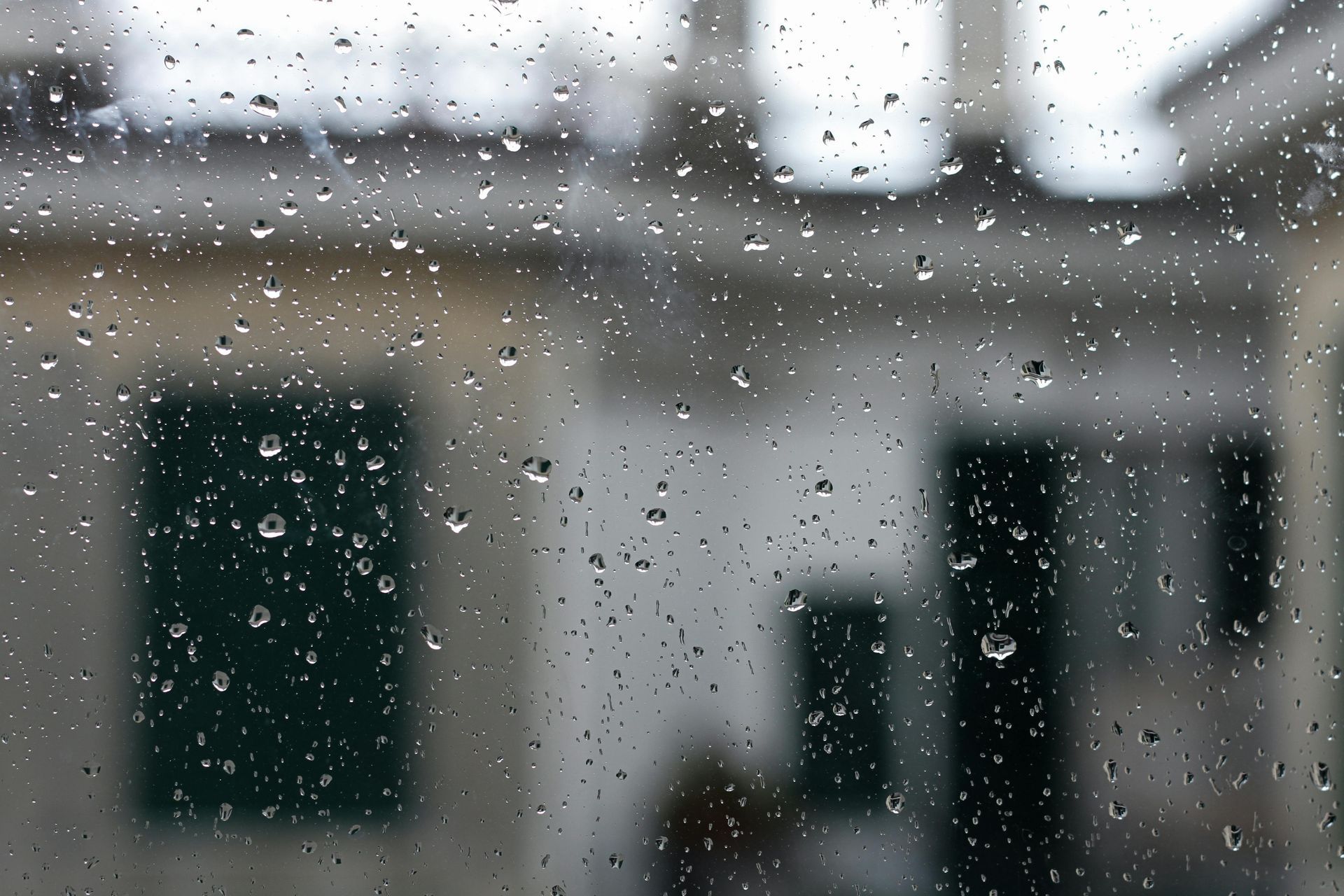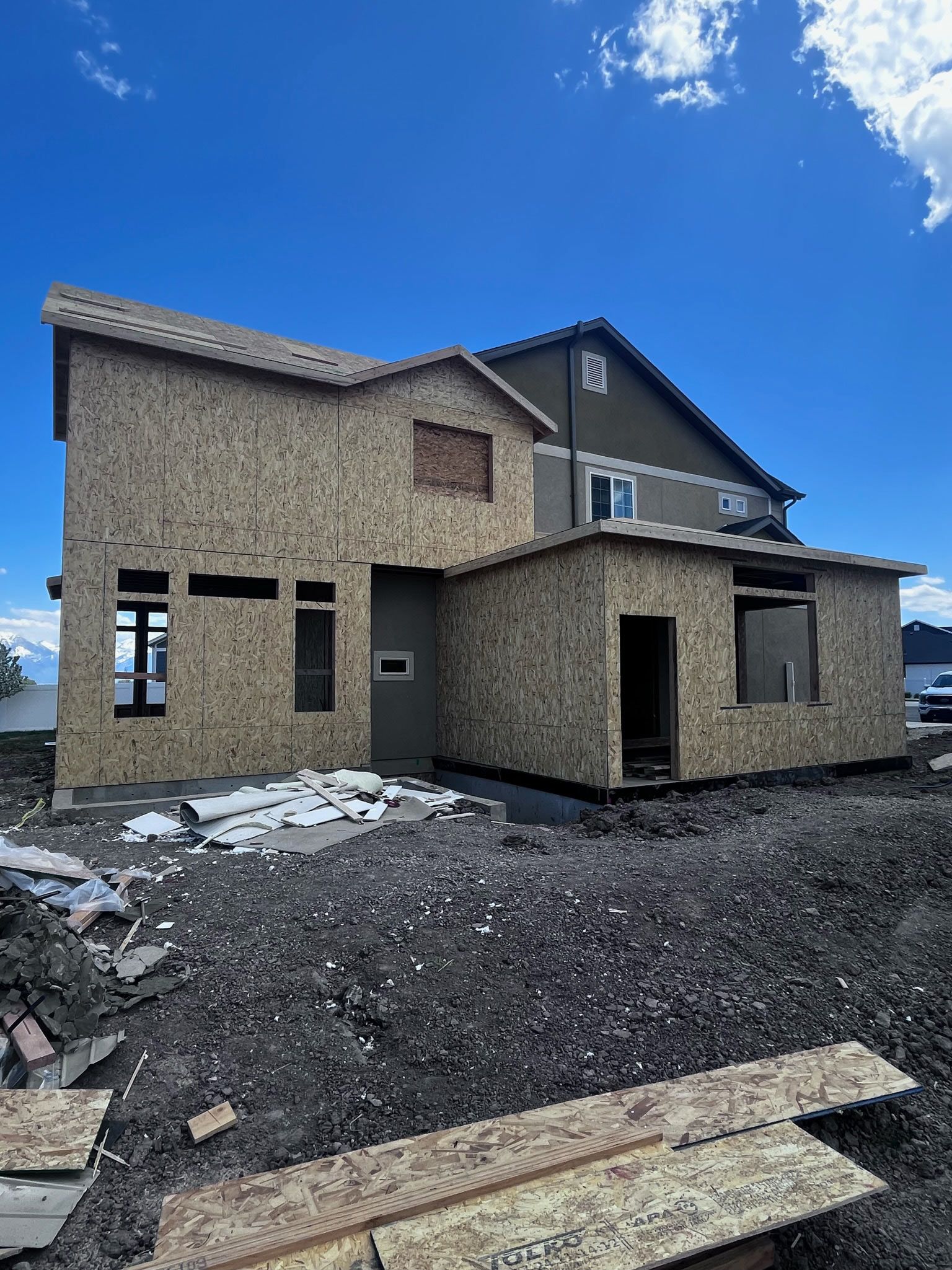Waterproofing Solutions: Protect Your Home from Leaks & Moisture

Why Waterproofing Solutions Matter
Water damage destroys homes faster than most people realize. A small leak, excess humidity, or a damp basement can lead to mold growth, foundation cracks, and wood rot—all of which are expensive to fix.
The good news? You can stop moisture before it causes serious damage. Waterproofing keeps your home dry, strengthens your foundation, and even improves indoor air quality.
This guide breaks down the best waterproofing methods, early warning signs of moisture problems, and why professional waterproofing is worth the investment. Whether you're dealing with a leaky roof, a wet basement, or standing water around your foundation, you’ll learn how to protect your home before it’s too late.
Signs Your Home Needs Waterproofing
Water problems don’t always start with major leaks. Many homeowners ignore small warning signs until the damage becomes expensive to fix. Catching issues early can save you thousands in repairs and keep your home safe from structural damage.
Here’s how to know if your home needs waterproofing:
Visible Water Damage
If you see water stains, peeling paint, or bubbling drywall, moisture is already making its way into your home. Basement walls and ceilings are the most common areas where these signs appear.
Mold and Mildew Growth
A musty smell or visible mold means moisture is trapped somewhere in your home. Mold thrives in damp environments and can cause serious health problems, especially for people with allergies or asthma.
Cracks in the Foundation
Hairline cracks may seem harmless, but they can expand over time as water seeps in. Larger cracks are a sign of foundation shifting or weakening, which can lead to major structural damage if ignored.
Efflorescence on Walls
If you notice a white, powdery residue on basement walls, that’s efflorescence. It happens when water evaporates and leaves behind mineral deposits. This is a clear sign that moisture is trying to make its way into your home.
Increased Indoor Humidity
If your home feels damp or sticky, especially in basements or crawl spaces, excess moisture is trapped inside. Over time, this can lead to mold growth, wood rot, and damage to furniture and walls.
Ignoring these signs won’t make the problem go away—it will only get worse. Waterproofing stops moisture at the source and protects your home before serious damage sets in.
Best Waterproofing Solutions for Different Areas of Your Home
Not all waterproofing methods work the same for every part of your home. A leaky basement needs a different approach than a damp attic or a cracked foundation. The right waterproofing solution depends on where moisture is coming from and how severe the problem is.
Here’s how to keep every part of your home dry and protected.
Basement Waterproofing
Basements are one of the most common places for water leaks and moisture buildup. Since they sit below ground, they are more likely to absorb water from the soil.
Best Solutions for Basement Waterproofing:
- Interior Sealants – Stops minor leaks and dampness but isn’t a long-term fix for major water problems.
- Exterior Waterproofing Membranes – A barrier that prevents water from seeping through foundation walls.
- French Drains – Redirects water away from your foundation, keeping the basement dry.
- Sump Pumps – Pumps out water that collects in the basement,
preventing flooding.
Foundation Waterproofing
Your foundation supports your entire home.
If water seeps in, it can cause cracks, shifting, and even structural failure. Keeping water away from the foundation is key.
Best Solutions for Foundation Waterproofing:
- Waterproofing Membranes – A thick coating applied to the foundation to block moisture.
- Drainage Boards – Creates a gap between the soil and foundation, so water doesn’t sit against the concrete.
- Grading the Soil – Sloping the ground away from your home to prevent water from pooling near the foundation.
- Crack Injection Repair – Fills foundation cracks with
waterproof epoxy or polyurethane foam to stop leaks.
Roof and Gutter Waterproofing
A leaky roof can lead to serious damage inside your home. If water gets past the shingles, it can soak into the attic, insulation, and walls. Gutters also play a big role in keeping water away from your home’s structure.
Best Solutions for Roof and Gutter Waterproofing:
- Waterproof Roof Sealants – A protective layer that prevents leaks.
- High-Quality Shingles – Water-resistant shingles help prevent water from seeping into the roof deck.
- Gutter Maintenance – Clogged gutters cause water to overflow and damage siding and foundations. Keep them clean.
- Downspout Extensions – Directs water
farther away from your home, so it doesn’t pool near the foundation.
Bathroom & Kitchen Waterproofing
Bathrooms and kitchens have the
most moisture in your home. Without proper waterproofing,
steam and water splashes can lead to mold, mildew, and even rot behind the walls.
Best Solutions for Bathroom & Kitchen Waterproofing:
- Waterproof Backer Boards – Used behind tile to prevent water from seeping into walls.
- Mold-Resistant Paint – Reduces moisture buildup and prevents mold growth.
- Grout Sealing – Stops water from penetrating through tiles in showers and backsplashes.
- Proper Ventilation –
Exhaust fans help remove steam and prevent condensation from building up.
Each part of your home needs a waterproofing strategy that fits its specific risks. Investing in the right solutions now will save you from major repairs later.
DIY vs. Professional Waterproofing: What’s the Best Choice?
Waterproofing isn’t always a DIY job. Some small fixes, like sealing a crack or cleaning gutters, are easy to handle. But when water damage goes deeper, hiring a professional is the smartest move.
Here’s when you can tackle waterproofing yourself and when you should call an expert.
When DIY Waterproofing Works
If the issue is minor and you catch it early, you can try some DIY waterproofing solutions.
Best DIY Fixes:
- Sealing small cracks – Use waterproof epoxy or polyurethane foam to seal thin foundation cracks.
- Applying waterproof coatings – Brush on waterproof paint or sealant for minor moisture issues on walls.
- Cleaning gutters and downspouts – Keep water flowing away from your home.
- Using a dehumidifier – Helps control humidity in damp basements and crawl spaces.
- Fixing leaks in plumbing – Tightening connections and replacing old caulking can prevent water damage.
While these DIY methods can help in the short term, they won’t solve deeper waterproofing issues.
When You Need a Professional Waterproofing Expert
If you have serious water damage, structural issues, or recurring moisture problems, it's time to bring in a professional. Ignoring these problems can lead to foundation failure, mold infestations, and expensive repairs.
Signs You Need a Pro:
- Large foundation cracks – Anything wider than ⅛ inch could mean serious structural issues.
- Standing water in the basement – If water keeps pooling, you need drainage solutions.
- Mold and mildew keep coming back – A sign that moisture is getting trapped in walls, floors, or ceilings.
- Water seeping through walls or floors – Indicates a bigger issue with foundation drainage.
- Your home’s grading isn’t working – If water pools around your home after rain, a professional may need to regrade the soil.
Why Professional Waterproofing Is Worth It
- They find the source of the problem. A pro doesn’t just fix the symptoms—they solve the root cause.
- They use high-quality materials. Professional-grade membranes, sealants, and drainage systems last longer.
- They prevent costly repairs. Fixing water damage after it happens is way more expensive than preventing it.
- They offer warranties. Many professional waterproofing companies
guarantee their work, giving you long-term protection.
If you’re dealing with constant leaks, foundation cracks, or mold growth, hiring an expert isn’t just an option—it’s a must.
Cost of Waterproofing: Is It Worth the Investment?
Waterproofing isn’t just an expense—it’s an investment that protects your home from costly damage. Ignoring moisture issues now can lead to foundation failure, mold infestations, and major structural repairs later.
How much does waterproofing cost? It depends on the method, the size of the problem, and whether you hire a professional.
Factors That Affect Waterproofing Costs
The price of waterproofing varies based on several factors:
- Size of the Area – Larger basements or foundations cost more to waterproof.
- Severity of the Problem – Fixing minor cracks is cheaper than dealing with full-scale water intrusion.
- Type of Waterproofing Used – Simple sealants cost less, while full drainage systems or exterior waterproofing cost more.
- Labor Costs – Hiring a professional increases the cost, but
it guarantees long-term results.
Average Cost of Common Waterproofing Solutions
On average, interior waterproof sealants cost between $3 to $9 per square foot, while exterior waterproofing membranes can range from $3,000 to over $10,000, depending on the size of the home.
For drainage solutions, French drains typically cost between $2,000 and $6,000, while installing a sump pump falls between $900 and $3,000. If you have foundation cracks, repairs can range from $500 to $2,500 per crack, depending on the severity. A full basement waterproofing system, which combines multiple methods, can cost anywhere from $5,000 to $15,000 or more.
Why Waterproofing Saves You Money in the Long Run
Many homeowners hesitate to spend money on waterproofing, but waiting too long leads to much higher costs.
- Foundation repairs can cost $10,000 or more if water damage worsens.
- Mold removal can cost thousands and lead to serious health risks.
- Water damage reduces home value and makes selling harder.
Return on Investment (ROI) for Homeowners
Waterproofing does more than protect your home—it increases its value. A dry basement and a solid foundation give buyers confidence.
- Homes with waterproofed basements sell faster because buyers avoid water damage risks.
- A professionally waterproofed home retains its value better over time.
Is Waterproofing Worth It?
Absolutely. Waterproofing now prevents expensive repairs later. If your home has moisture problems, fixing them ASAP saves money and protects your biggest investment.
How Waterproofing Fits into Your Home Renovation Plan
Waterproofing isn’t just a repair—it’s a critical part of home renovation. Whether you’re remodeling a basement, updating your foundation, or improving energy efficiency, moisture protection should be a priority.
Why Waterproofing Should Come First
Too many homeowners skip waterproofing during renovations, only to regret it later. Before you install new floors, finish a basement, or add insulation, you need a dry, moisture-free space.
Here’s why waterproofing should be step one in your renovation plan:
- Prevents future damage – New floors, drywall, or paint won’t last if water leaks in.
- Protects structural integrity – Water weakens concrete, wood, and insulation.
- Saves money on repairs – Fixing water damage after a remodel costs more than preventing it.
- Improves indoor air quality – Reduces mold growth and excess humidity.
How Waterproofing Works with Other Home Upgrades
If you’re planning a major renovation, waterproofing can be integrated with other improvements:
- Foundation Repairs – Fixing cracks before remodeling prevents future structural issues.
- Basement Finishing – A waterproofed basement stays dry, making it safe for flooring, drywall, and insulation.
- Energy Efficiency Upgrades – Waterproofing reduces humidity, which means your HVAC system works more efficiently.
- Exterior Drainage Improvements – Fixing grading and gutters protects your home’s foundation from water damage.
Make Waterproofing a Priority in Your Renovation
Waterproofing isn’t an optional add-on—it’s essential for protecting your investment. Whether you’re updating a single room or remodeling your entire home, keeping moisture out ensures your improvements last.
Thinking about renovating? Start with waterproofing. It’s the best way to protect your home from the ground up.
Choosing the Right Waterproofing Contractor
Not all waterproofing companies deliver the same level of service. Some offer quick fixes that don’t last, while others provide long-term solutions backed by warranties. Choosing the right contractor ensures your home stays dry and protected for years.
What to Look for in a Waterproofing Contractor
Hiring the wrong contractor can lead to wasted money and ongoing water problems. Before making a decision, check for these key qualifications:
- Experience – Look for a company with years of experience in waterproofing basements, foundations, and roofs.
- Licensing & Insurance – A legitimate contractor should be fully licensed and insured to protect you from liability.
- Warranty on Work – Reliable waterproofing companies stand by their work and offer warranties on their solutions.
- Customer Reviews & References – Read reviews and ask for customer references to verify their reputation.
- Custom Solutions – Every home is different. Avoid contractors who
offer a one-size-fits-all approach.
Questions to Ask Before Hiring
Before signing a contract, ask these important questions to make sure you’re hiring the right team:
- What waterproofing methods do you recommend for my home?
- Do you offer free inspections and estimates?
- How long will the work take?
- What kind of warranty do you provide?
- Can you show me before-and-after examples of past projects?
- Do you have proper licensing and insurance?
- What will happen if water problems return after the work is done?
Why Hiring a Professional Matters
Waterproofing isn’t a job for an inexperienced handyman. Proper waterproofing requires specialized techniques and high-quality materials. Choosing the right contractor saves you time, money, and frustration.
A professional doesn’t just cover up the problem—they fix it at the source. They use proven methods like:
- Exterior waterproofing membranes
- Interior drainage systems
- Foundation crack sealing
- French drains and sump pumps
Investing in a reliable, experienced waterproofing contractor ensures that your home stays protected for the long haul.
Protect Your Home with Professional Waterproofing
Waterproofing isn’t just about stopping leaks—it’s about protecting your home’s structure, value, and livability. Whether you’re dealing with a damp basement, foundation cracks, or high humidity, fixing moisture issues now prevents costly repairs later. The right waterproofing solutions keep your home dry, safe, and energy-efficient for years to come.
If you're planning a home remodel, basement finishing, or even a kitchen or bathroom upgrade, waterproofing should be the first step. Foundation Finishes specializes in basement finishing, home remodels, home additions, bathroom remodeling, and kitchen remodeling in Centerville, UT. Their expert team ensures your home stays dry and protected before any renovation begins.
Don’t wait until water damage ruins your investment. Contact Foundation Finishes today for professional waterproofing and home improvement solutions that last. Get a free consultation and start protecting your home today!


